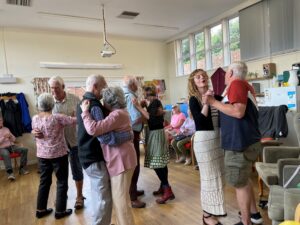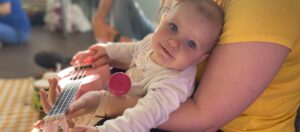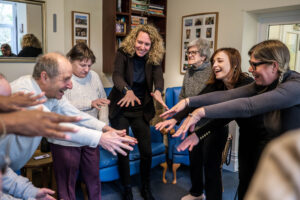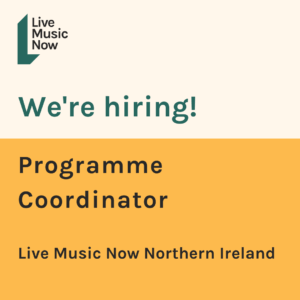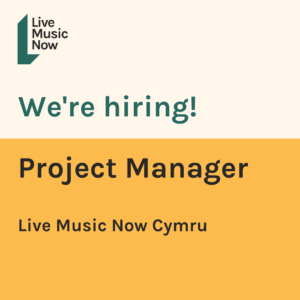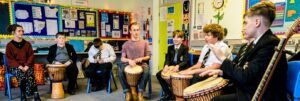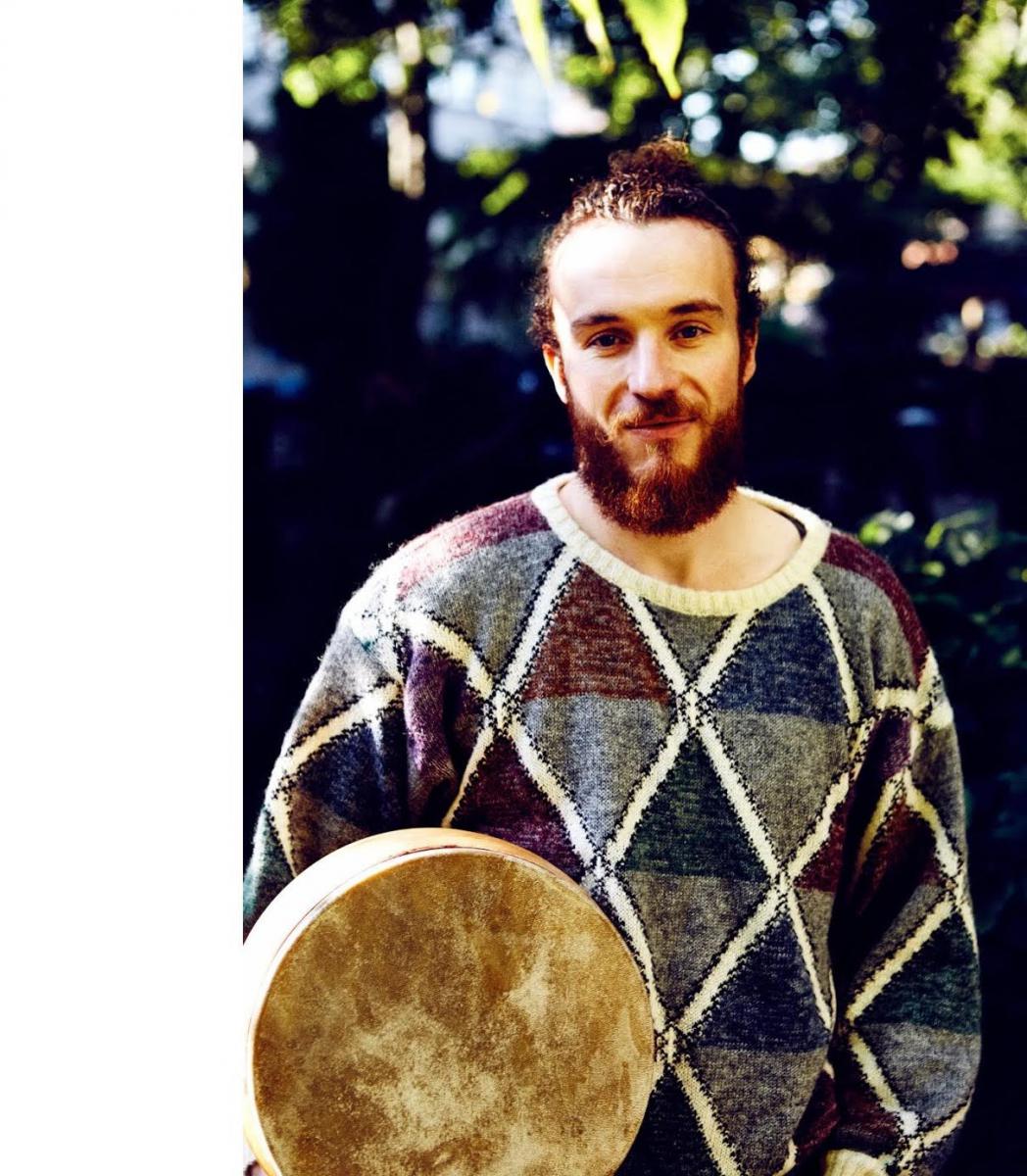 I recently had the great opportunity to attend Live Music Now’s conference at the Royal Society of Medicine which examined and explored musical interventions in the treatment of older people with neurological disorders. Having been on the Live Music Now scheme for a number of years with my folk group Tir Eolas and having worked in numerous hospitals and care settings I was extremely keen to attend and participate in the day which included presentations by numerous renowned researchers in the field, discussions and debates stimulated by those presentations, and opportunities to meet and share experiences with fellow delegates and colleagues.
I recently had the great opportunity to attend Live Music Now’s conference at the Royal Society of Medicine which examined and explored musical interventions in the treatment of older people with neurological disorders. Having been on the Live Music Now scheme for a number of years with my folk group Tir Eolas and having worked in numerous hospitals and care settings I was extremely keen to attend and participate in the day which included presentations by numerous renowned researchers in the field, discussions and debates stimulated by those presentations, and opportunities to meet and share experiences with fellow delegates and colleagues.
The panelists and presenters all drew from their own research pursuits. Prof. Raymond McDonald discussed the ‘hows’ and ‘whys’ in the role of music and wellbeing. Prof. Grenville Hancox looked specifically at Parkinson’s and how singing can benefit physically, emotionally and psychologically. Prof. Frederike van Wijck spoke about the body of existing research into the functional recovery after stroke. Prof Norma Daykin and David Walters focused on work with people living with dementia and a new program led by Neil Valentine in partnership with the Bournemouth Sinfonia for which they are conducting research. I was particularly inspired to learn about therapeutic instrumental music performance (TIMP), where instruments are used to exercise and stimulate functional movement patterns and formed part of Dr Wendy Magee’s presentation, who attended the conference from Philadelphia. This program uses musical intervention to support patients’ cognitive and emotional rehabilitation post stroke and has proven to be a huge success when compared to other commonly prescribed therapies. Having had fantastic experiences working with percussion groups for The Stroke Association I was delighted to see the expanding body of Cochrane accredited research based evidence that illustrates the power that expressive rhythmical participation can have on a person’s rehabilitation. Dr Magee was able to make powerful connections from her 25 years of clinical practice as a music therapist in addition to her international reputation as a leading figure in music therapy research.
Among the many interesting questions presented to our panelists, there were a number relating to the intersection between ‘music therapy’ and ‘music being therapy’. This is something which I have myself have questioned and reflected on in my own work as a collaborative musician and composer. Dr Magee suggested the possibility of partnership working as a possible resolution where professional musicians can draw on their experiences as musicians and creators alongside the therapists clinical background and awareness of individual patient treatment goals.
A day of musical discussion should of course include music itself and many of the presenters used interactive musical activities to illustrate their points and objectives to great effect. Friend, colleague and fellow LMN musician Hermione Jones performed a beautiful solo cello piece by Philip Glass which framed the afternoon discussions in a poignant and meaningful way. Julian West, who has been a huge inspiration to me on my journey into this field of work, joined the afternoon discussion and was able to draw on his depth of experience in developing and leading projects in health and care settings, and training young musicians to work in these environments.
I left the conference feeling invigorated, inspired and opulent with the new information I had absorbed and overloaded on…all good things! The role of music in health and care has never been so important and the bank of accredited qualitative and quantitative research to proves this is rapidly growing. The day was a reminder of the importance of organisations such as Live Music Now who understand the mighty power of musical intervention, support the delivery of this work and pioneer innovative ways of opening access to inclusive musical experiences for all.
© Ruairi Glasheen
